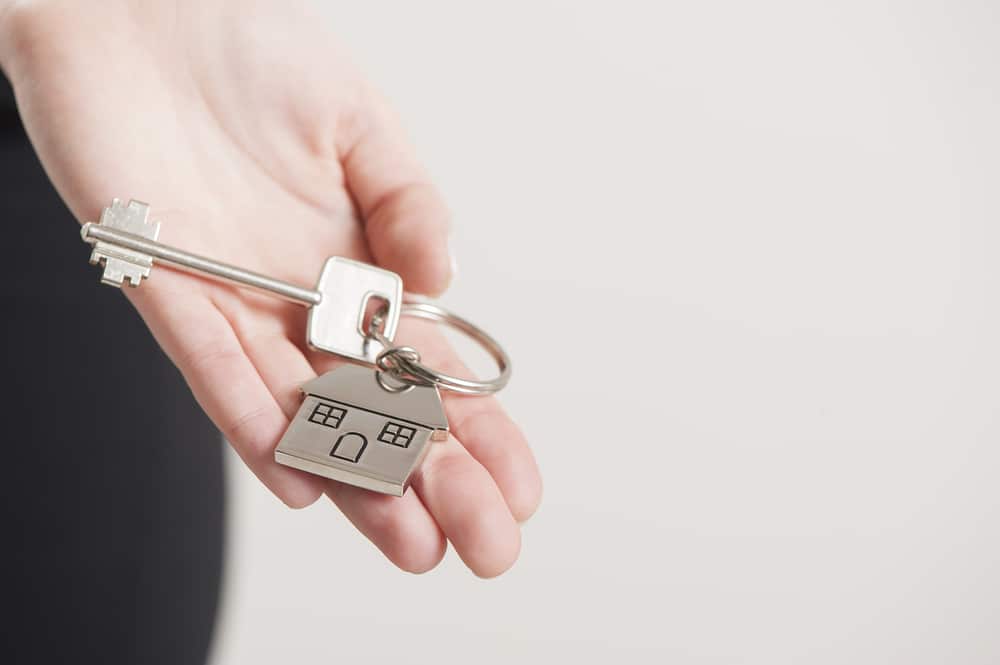Jasmine Birtles
Your money-making expert. Financial journalist, TV and radio personality.

In a time when affordable housing isn’t easy to come by, many people are looking for different ways to get on the property ladder. If you’re struggling to get enough money for a deposit or a mortgage, housing associations may offer you a cheaper alternative.
Housing associations provide homes for those on a low income or in need of support. If you’re renting through a housing association, it’s likely to be significantly cheaper than doing so privately.
If you want to buy in the future, there are likely to be opportunities for discounted Shared Ownership or outright buying of homes through the association once you’re a tenant.
Short on time? Navigate to the part of this article that’s most relevant to you:

You can apply directly to a housing association, but it’s best to make your application through your local council as this increases your chances of getting a home.
Here’s what you need to know:
Applying for a housing association home can be a very lengthy process depending upon your circumstances. In some cases it can take several years, so really think about whether this is something that you want to do before you put yourself on a waiting list.
The truth is most people are eligible to apply to rent a housing association home but, as there is a long waiting list, those who are considered a priority are most likely to get a place.
Priorities include:
Those who are homeless, fleeing violence, need to move because of health or disability, or are living in overcrowded or dangerous conditions are first priority for housing association properties, according to Shelter.

If you are on a low income (usually meaning 60% or less of the average British household income) you will be a priority. If you have dependents, children, or are expecting a child, you have a better chance than most of being given preference.
For a guide as to how many points your household might be given, click here.

If you’re aged 55 or over, you can get help from a scheme called Older People’s Shared Ownership’. This works in the same way as a Shared Ownership scheme (see below), but you can only buy up to 75% of your home. Once you own 75% though, you won’t have to pay rent on the remaining share.
If you are elderly then you too are considered a priority for housing.

Once you’ve been allocated a property, it’s typical to be put on a twelve-month starter tenancy, which operates much like a trial period.
After that, you usually become a fixed term tenant. As with a usual tenancy agreement, the landlord (in this case the housing association) is responsible for repairs, as well as for ensuring sufficient modern facilities and warmth. If the housing association needs to move you then they should offer alternative accommodation.
Housing association rents are cheaper because they put the profit back into existing properties and financing new properties. However, rent prices obviously vary from area to area. In London they are more expensive than in Hull, for example.
If there are any problems with the standard of the housing association property you’re renting then you should raise it with the landlord before making a formal complaint. If the issue still isn’t resolved you can contact the Housing Ombudsman.

Shared Ownership, also known as Social HomeBuy, means to buy a share of your house and pay rent on the rest.
You must buy at least 25% of your home, and you are then able to purchase more until you own the entire house (this is known as ‘staircasing.’)
You can get a mortgage to buy your portion of the home. Only certain mortgage companies do loans for shared ownership. Use our free mortgage brokers London and Country to see where you can get the best deal.
Whilst you’re still paying rent, the landlord will be able to charge up to 3% of their share of the house.
You get a discount of up to £16,000 on the value of your home, depending on the location of the house and the size of the share you are buying.
The value of the shares you buy will be determined by the current value of your property. It’s possible that you might pay less or more for shares if you’re buying them at a different time.
To qualify for the scheme, your household must earn £60,000 or less and you must be either a first time buyer or unable to afford to buy a house now.
Not all housing authorities are signed up to the scheme, so it’s important you look into whether this is an option, or visit Share to Buy to find appropriate schemes. You will not be able to apply for this scheme if you have an assured shorthold tenancy.
If you’re disabled, the Home Ownership for People with Long-Term Disabilities (HOLD) scheme can help you buy a home that is for sale as a shared-ownership. HOLD is only possible if no other Help to Buy schemes meet your needs. For more information on HOLD go here.

If you had a public sector landlord for three years or more you can apply for the Right to Acquire your housing association home.
A public sector landlord might be one of the following:
You can only do this if your property has been built or bought by a housing association after the 31 March 1997, or if it has been transferred to a housing association from a local council after that date.
Your landlord must be registered with Homes England and the property must be self-contained and your main/only home.
You can also make a joint application with someone who shares your tenancy or with up to three family members who have lived with you in the last 12 months.
You will get a discount of up to £16,000, depending upon the location of your property.
To apply you must fill in the Right to Acquire application form. Your landlord will then have four weeks to reply (or eight if they have been your landlord for less than five years.)
They may offer to sell you another empty property that they own, but you do not have to accept.
If they decline the offer to sell they must give a reason, but their decision cannot be appealed against.
If they agree to sell then they must send you an offer within eight weeks if it’s a freehold property, or within twelve weeks if it’s a leasehold property. You will then have twelve weeks to reply.
If you wish to sell your home within the first ten years you must first offer it back to the landlord and they must respond within eight weeks.
It’s important to be aware that if you intend to sell your house within the first five years, you may have to pay back some or all of your discount, depending on how early you are selling. For example, if you sell within the first year you’ll have to pay back 100% of your discount, in the second year 80% etc.

A number of housing association tenants are now able to purchase their homes under the Right to Buy scheme, most commonly available to council tenants.
To do this you must be living in a home where you were once a council tenant when it was transferred to a housing association. In such a case, you might have a ‘preserved’ Right to Buy.
If these circumstances apply to you then you should ask your landlord whether you have the Right to Buy.
Under this scheme there are much higher maximum discounts. According to Gov.uk, you get a 50% discount if you’ve been a public sector tenant for between three and five years. After five years, the discount goes up by 2% for every extra year you’ve been a public sector tenant, up to a maximum of 70% – or £78,600 across England and £104,900 in London boroughs (whichever is lower).
Use this Right to Buy calculator to see how much of a discount you may be entitled to.
For further information about housing associations you can ask your local council, or visit the Directory of National Housing Federation Directory of Members, which has a list of housing associations within each local authority.
Also, see this article by Shelter on how to get a home through a housing association, and the government’s advice page.


how does this help low income families stuck with expensive private landlord rents?
Looking for 1/2 bedrooms in Southport max rent £600
Good information on this.
I am looking for a 2 bed self contained flat to rent in Baines area
I’m looking for one bed self contained flat in Northfield or Longbridge area can you please help me
I’m looking for two bedroom property in Northwood and you are you come on landlord what’s her house back
I am looking for one bedroom
I like your tip about how you can make a joint application with someone who shares your tenancy. That seems like a good way to save money. I’ll have to consider your tips so that I can get cheap housing.